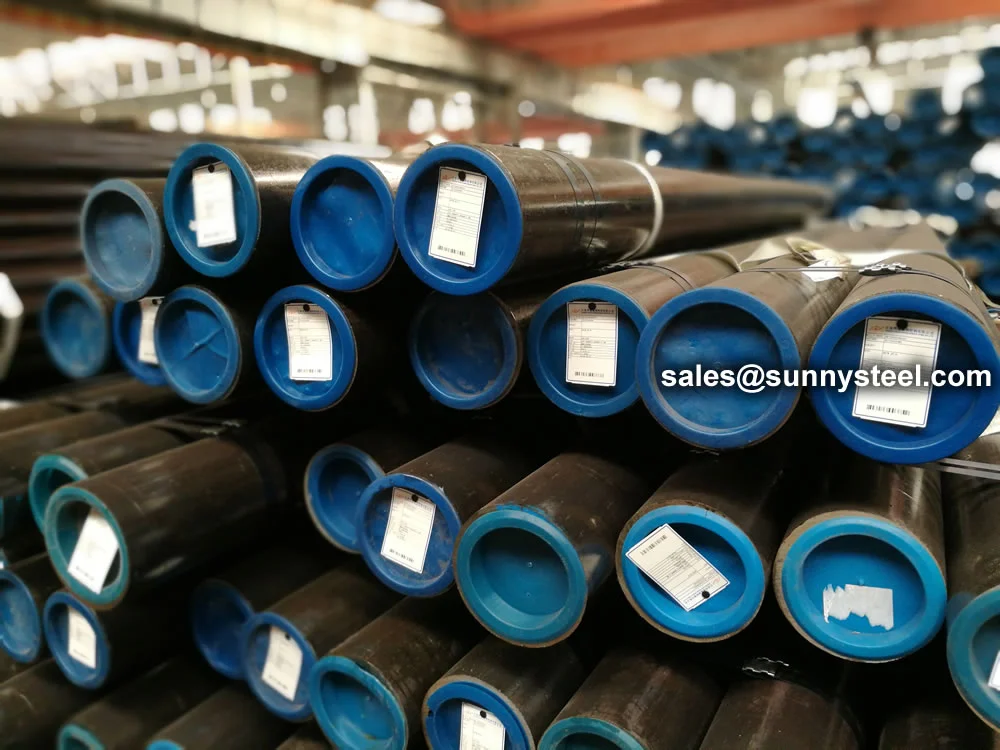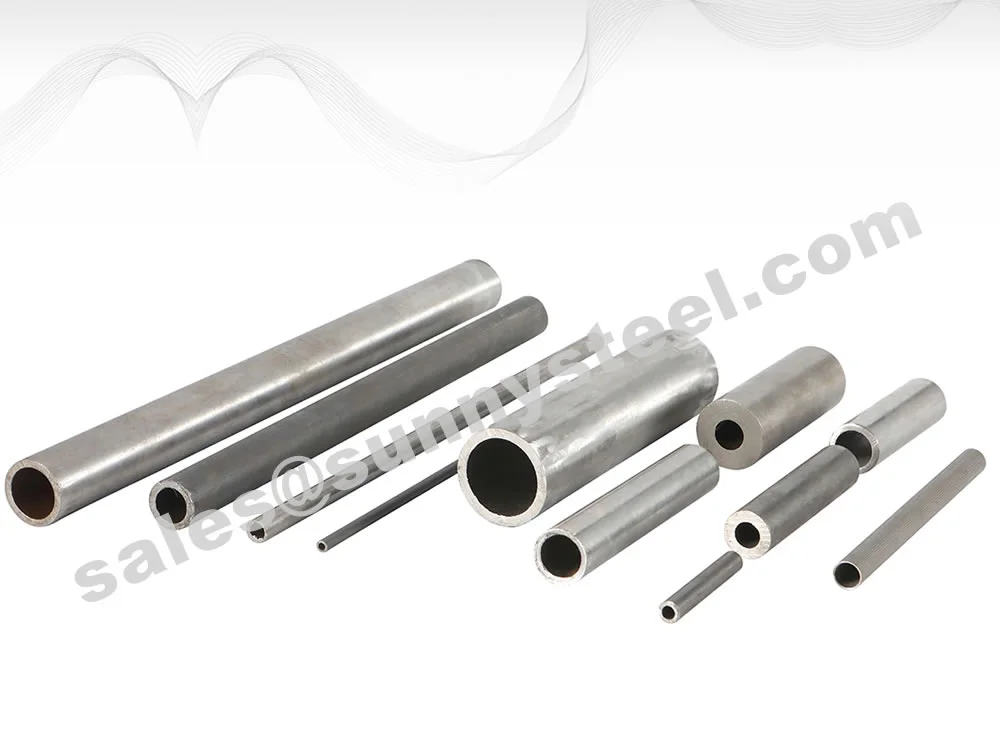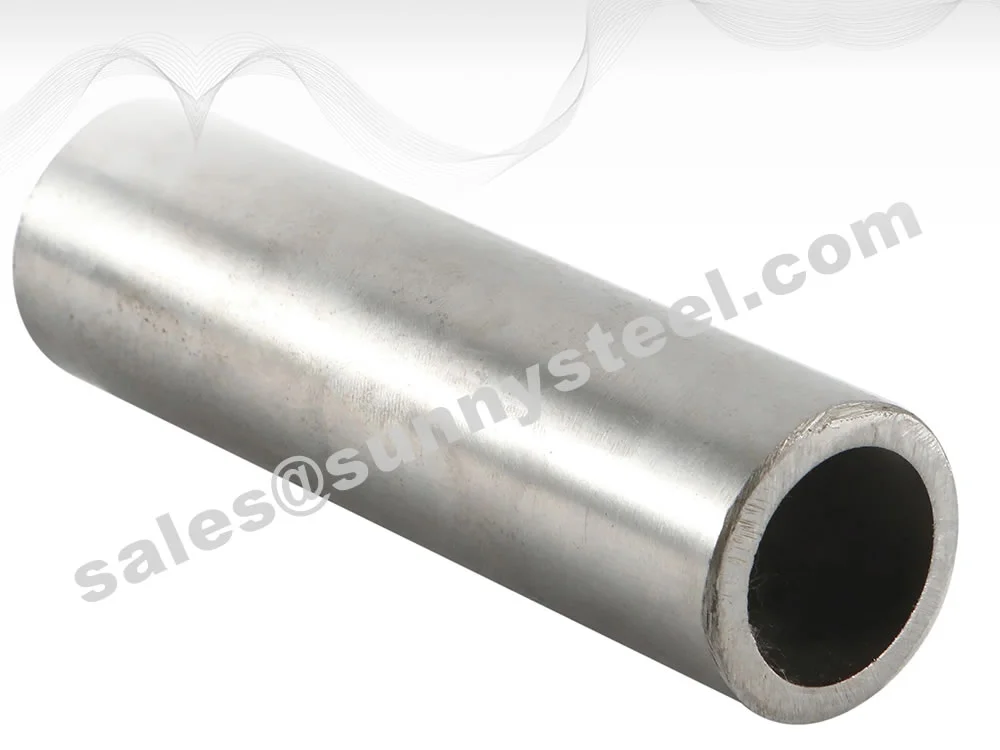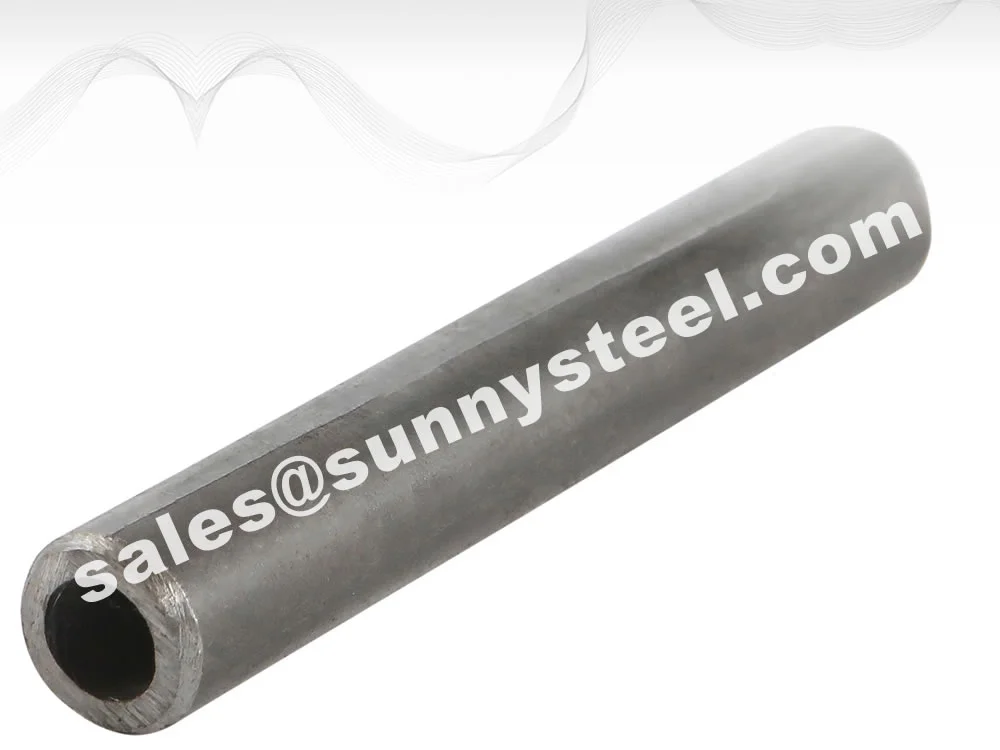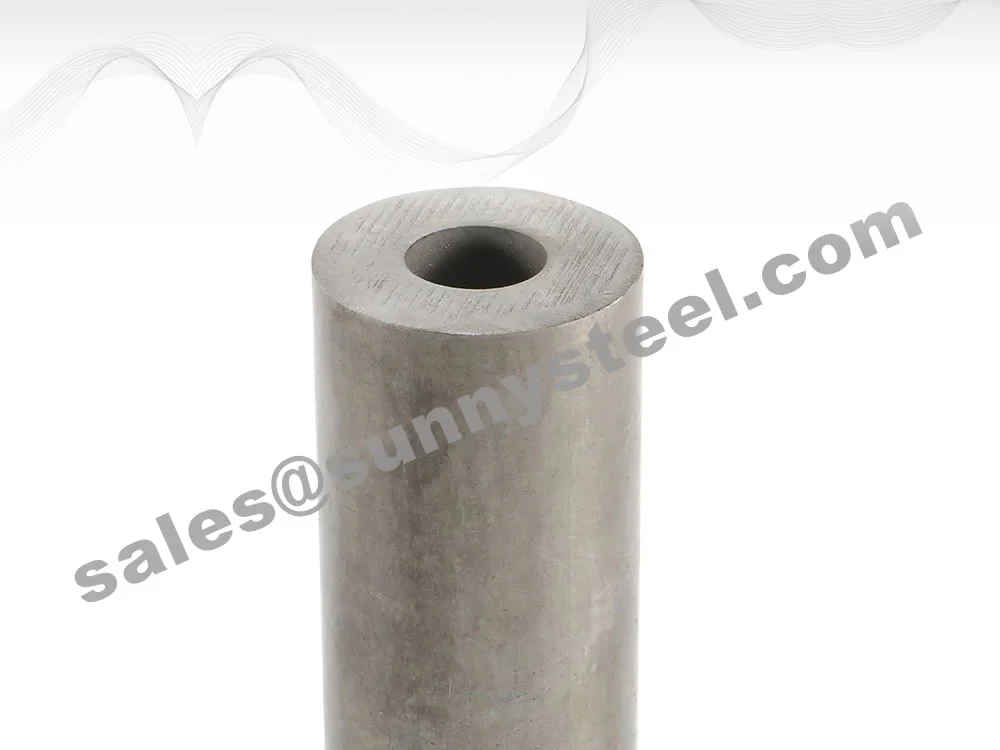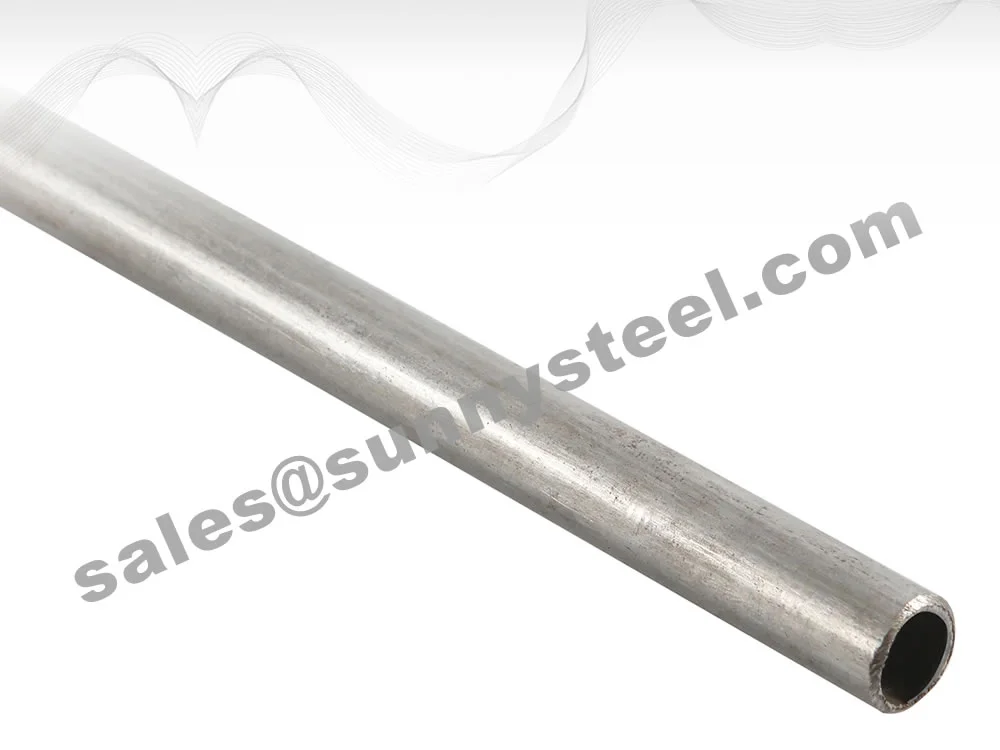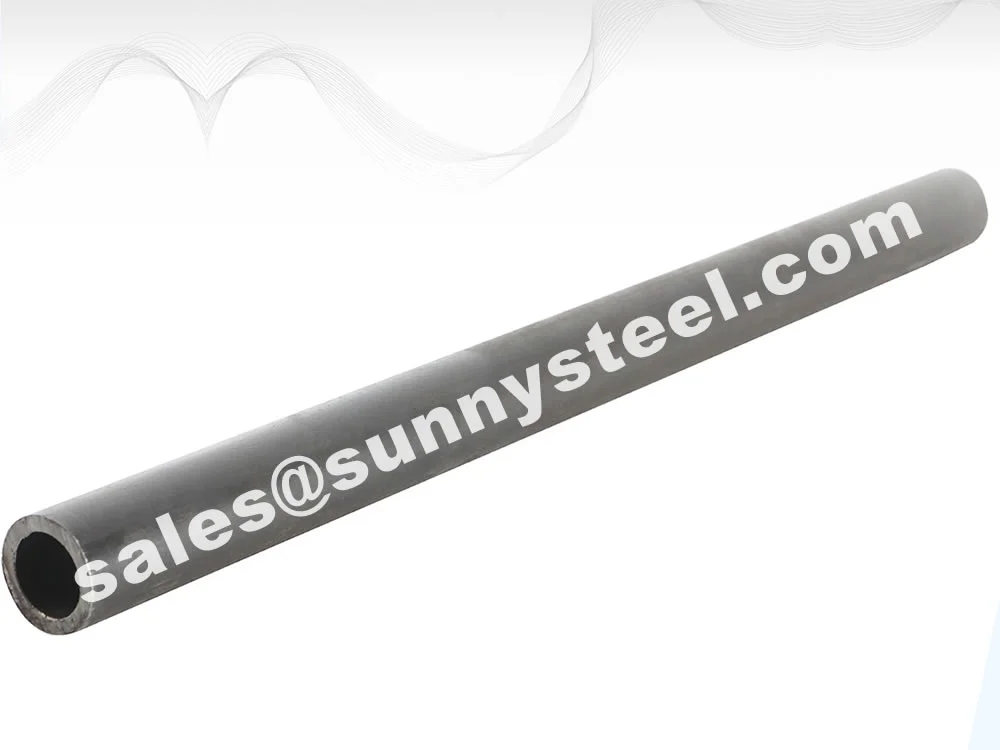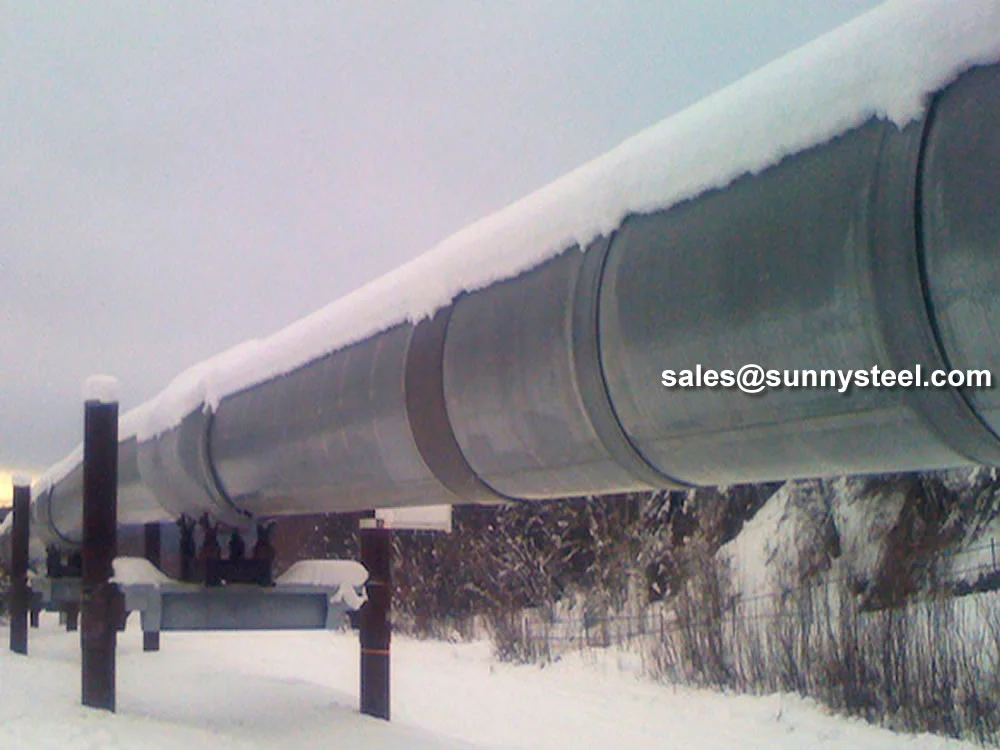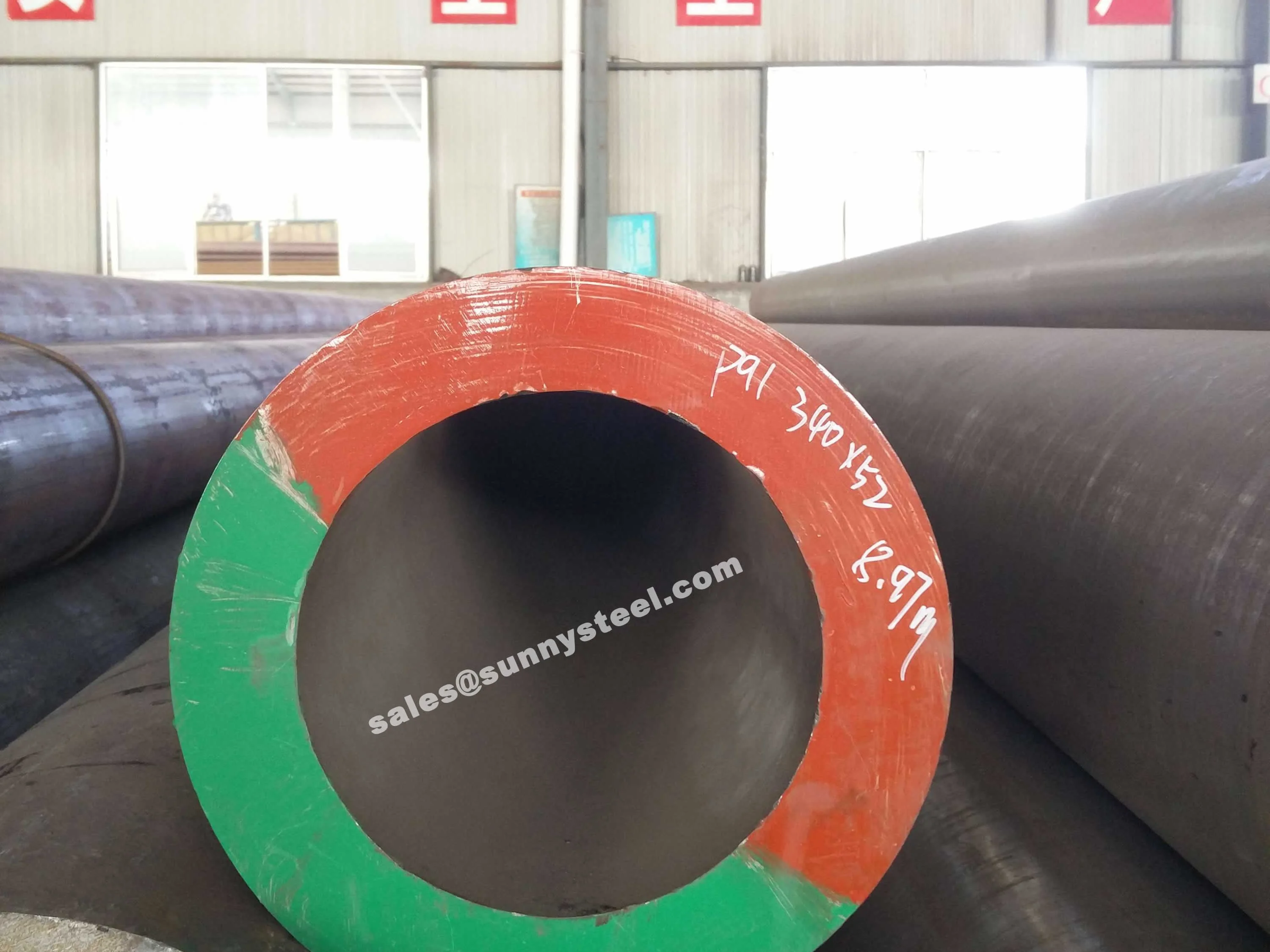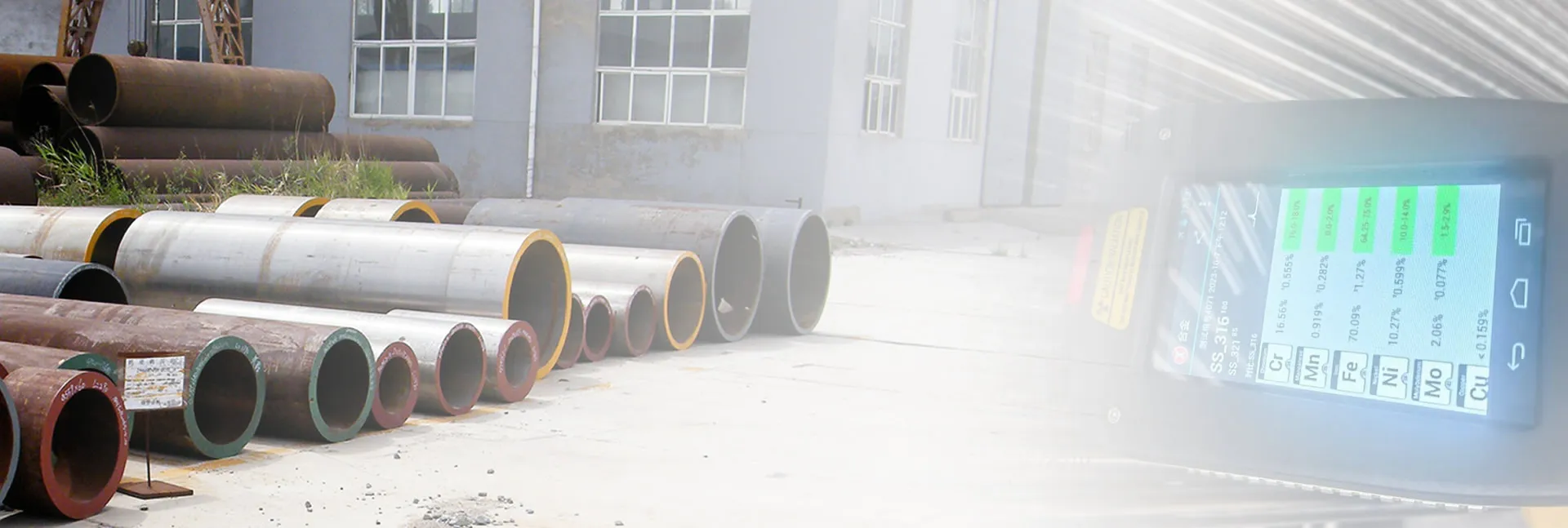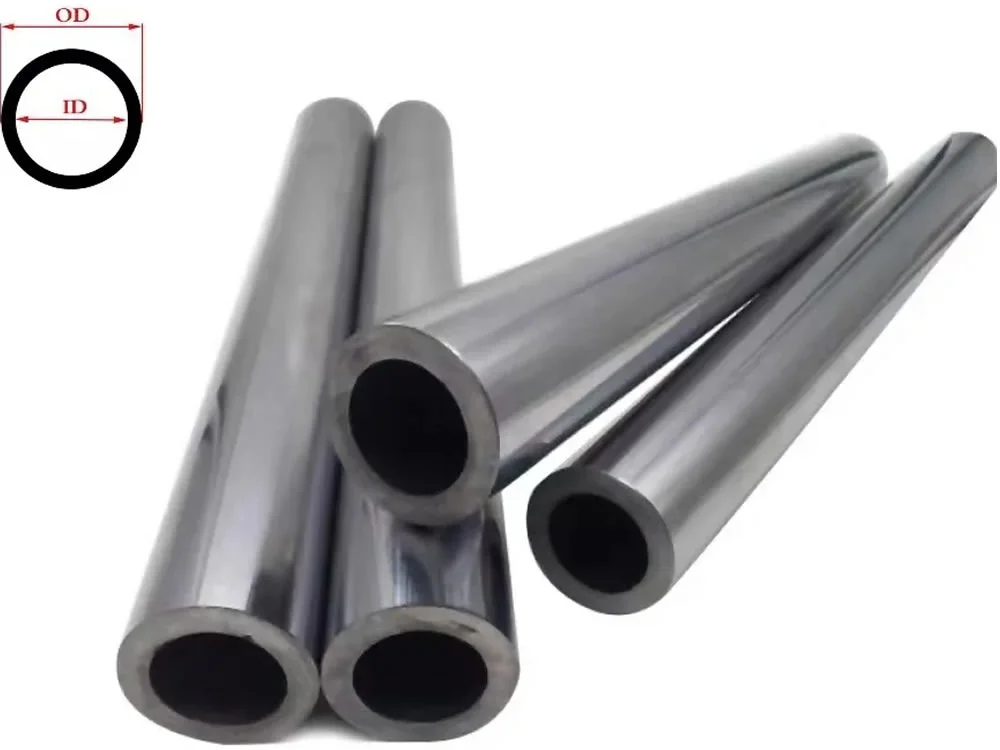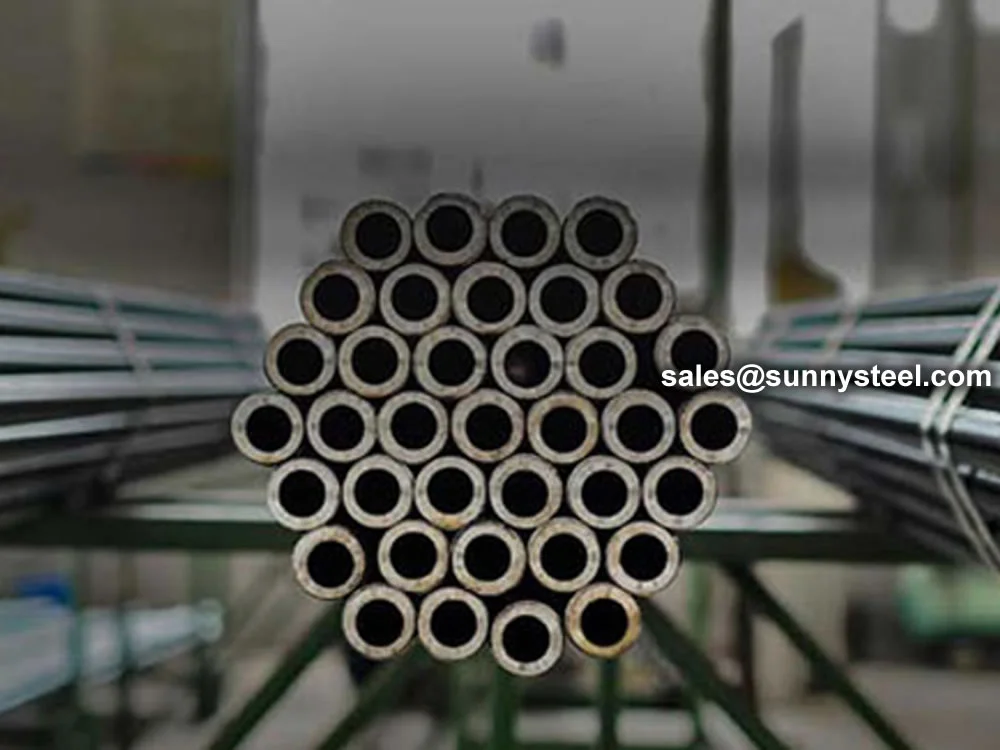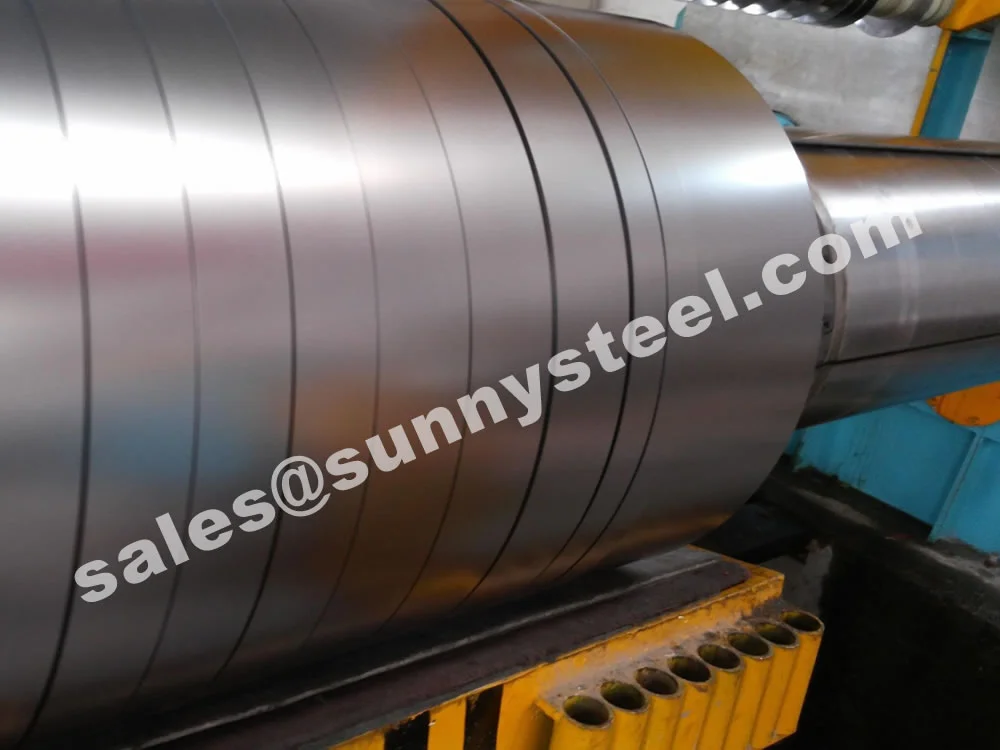ASTM A519 Carbon and Alloy Steel Mechanical Tubing is a premium seamless mechanical
tubing engineered for high-strength, precision, and corrosion resistance in demanding
applications. Conforming to the ASTM A519 standard, this carbon steel tubing and alloy
steel tubing is designed for machining, heat treating, and structural uses in industries like
automotive, aerospace, and construction. Available in grades such as 1026, 4130, and 4140, it offers tailored
mechanical properties to meet specific requirements, ensuring durability in industrial piping and
mechanical systems.
The ASTM A519 Mechanical Tubing is manufactured through hot-rolling or cold-drawing processes,
followed by heat treatments like normalizing, annealing, or quenching and tempering to achieve optimal strength and
toughness. Available in round, square, rectangular, or special shapes, with outer diameters from 1/4” to 50 7/8” and
wall thicknesses from 1mm to 25mm, it supports diverse project needs. Surface treatments such as galvanizing, FBE,
or 3LPE coatings enhance corrosion resistance, protecting against environmental wear in
industrial piping applications. Plain, beveled, or threaded ends ensure seamless integration into
complex systems.
The Seamless Mechanical Tubing undergoes rigorous testing, including tensile, hardness, flattening,
and nondestructive tests, to ensure compliance with ASTM A519 standards. For example, Grade 1026 offers a tensile
strength of approximately 480 MPa and a yield strength of 310 MPa, while alloy grades like 4130 and 4140 provide
higher strength for high-stress applications. These properties make the tubing ideal for hydraulic cylinders,
automotive components, and structural frameworks, where corrosion resistance and precision are
critical. The tubing’s heat-treatable nature allows for customized properties, enhancing its suitability for
specific mechanical demands.
Compatible with fittings and components conforming to standards like ASTM A234 or A105, the ASTM A519
Mechanical Tubing integrates seamlessly into industrial piping and structural systems.
Compared to other standards like ASTM A106 or A335, ASTM A519 excels in mechanical applications requiring close
tolerances and high strength, offering a cost-effective solution for machining and structural tasks. Its seamless
construction ensures reliability under high-pressure conditions, making it a preferred choice for engineers seeking
durable solutions for boiler pipeline protection and mechanical assemblies.
Engineered to address challenges like pipeline wear, corrosion, and mechanical stress, the ASTM A519 Carbon
and Alloy Steel Mechanical Tubing delivers unmatched performance in harsh environments. Its precision
manufacturing and robust alloy options make it ideal for applications requiring corrosion
resistance and structural integrity, ensuring safety, longevity, and efficiency in automotive,
aerospace, and construction projects.
Features Specifications – OD vs Wall Thickness
| OD (mm) |
Wall Thickness (mm) |
|
2 |
2.5 |
3 |
3.5 |
4 |
4.5 |
5 |
6 |
6.5–7 |
7.5–8 |
8.5–9 |
9.5–10 |
11 |
12 |
| Φ25–Φ28 |
● |
● |
● |
● |
● |
● |
|
|
|
|
|
|
|
|
| Φ32 |
|
● |
● |
● |
● |
● |
● |
|
|
|
|
|
|
|
| Φ34–Φ36 |
|
● |
● |
● |
● |
● |
● |
|
|
|
|
|
|
|
| Φ38 |
|
● |
● |
● |
● |
● |
● |
|
|
|
|
|
|
|
| Φ40 |
|
|
● |
● |
● |
● |
● |
|
|
|
|
|
|
|
| Φ42 |
|
|
● |
● |
● |
● |
● |
|
|
|
|
|
|
|
| Φ45 |
|
|
● |
● |
● |
● |
● |
● |
|
|
|
|
|
|
| Φ48–Φ60 |
|
|
● |
● |
● |
● |
● |
● |
● |
|
|
|
|
|
| Φ63.5 |
|
|
|
● |
● |
● |
● |
● |
● |
● |
|
|
|
|
| Φ68–Φ73 |
|
|
|
|
● |
● |
● |
● |
● |
● |
|
|
|
|
| Φ76 |
|
|
|
|
● |
● |
● |
● |
● |
● |
● |
● |
● |
● |
| Φ80 |
|
|
|
|
● |
● |
● |
● |
● |
● |
● |
● |
● |
● |
| Φ83 |
|
|
|
|
● |
● |
● |
● |
● |
● |
● |
● |
● |
● |
| Φ89 |
|
|
|
|
● |
● |
● |
● |
● |
● |
● |
● |
● |
● |
| Φ95 |
|
|
|
|
● |
● |
● |
● |
● |
● |
● |
● |
● |
● |
| Φ102 |
|
|
|
|
● |
● |
● |
● |
● |
● |
● |
● |
● |
● |
| Φ108 |
|
|
|
|
● |
● |
● |
● |
● |
● |
● |
● |
● |
● |
| Φ114 |
|
|
|
|
|
● |
● |
● |
● |
● |
● |
● |
● |
● |
| Φ121 |
|
|
|
|
|
● |
● |
● |
● |
● |
● |
● |
● |
● |
| Φ127 |
|
|
|
|
|
● |
● |
● |
● |
● |
● |
● |
● |
● |
| Φ133 |
|
|
|
|
|
● |
● |
● |
● |
● |
● |
● |
● |
● |
| Φ140 |
|
|
|
|
|
|
● |
● |
● |
● |
● |
● |
● |
● |
| Φ146 |
|
|
|
|
|
|
● |
● |
● |
● |
● |
● |
● |
● |
| Φ152 |
|
|
|
|
|
|
● |
● |
● |
● |
● |
● |
● |
● |
| Φ159 |
|
|
|
|
|
|
● |
● |
● |
● |
● |
● |
● |
● |
| Φ168 |
|
|
|
|
|
|
● |
● |
● |
● |
● |
● |
● |
● |
Chemical Composition (%) of ASTM A519
| Grade |
C |
Mn |
P ≤ |
S ≤ |
Si |
Cr |
Mo |
| 1008 |
≤0.10 |
0.30–0.50 |
0.040 |
0.050 |
— |
— |
— |
| 1010 |
0.08–0.13 |
0.30–0.60 |
0.040 |
0.050 |
— |
— |
— |
| 1018 |
0.15–0.20 |
0.60–0.90 |
0.040 |
0.050 |
— |
— |
— |
| 1020 |
0.18–0.23 |
0.30–0.60 |
0.040 |
0.050 |
— |
— |
— |
| 1025 |
0.22–0.28 |
0.30–0.60 |
0.040 |
0.050 |
— |
— |
— |
| 1026 |
0.22–0.28 |
0.60–0.90 |
0.040 |
0.050 |
— |
— |
— |
| 4130 |
0.28–0.33 |
0.40–0.60 |
0.040 |
0.050 |
0.15–0.35 |
0.80–1.10 |
0.15–0.25 |
| 4140 |
0.38–0.43 |
0.75–1.00 |
0.040 |
0.050 |
0.15–0.35 |
0.80–1.10 |
0.15–0.25 |
Mechanical Properties of ASTM A519
| Grade |
Condition |
Tensile (MPa) |
Yield (MPa) |
Elongation (%) |
| 1020 | CW | ≥414 | — | ≥5 |
| 1020 | SR | ≥345 | ≥448 | ≥10 |
| 1020 | A | ≥193 | ≥331 | ≥30 |
| 1020 | N | ≥234 | ≥379 | ≥22 |
| 1025 | CW | ≥448 | ≥517 | ≥5 |
| 1025 | SR | ≥379 | ≥483 | ≥8 |
| 1025 | A | ≥207 | ≥365 | ≥25 |
| 1025 | N | ≥248 | ≥379 | ≥22 |
| 4130 | SR | ≥586 | ≥724 | ≥10 |
| 4130 | A | ≥379 | ≥517 | ≥30 |
| 4130 | N | ≥414 | ≥621 | ≥20 |
| 4140 | SR | ≥689 | ≥855 | ≥10 |
| 4140 | A | ≥414 | ≥552 | ≥25 |
| 4140 | N | ≥621 | ≥855 | ≥20 |
| 1026 | (典型) | 490 | 415 | ≈15 |
Comparison of ASTM A519 Grades with Other Standards
| Feature |
ASTM A519 Grade 1026 |
ASTM A519 Grade 4130 |
ASTM A106 Grade B |
| Material Type |
Carbon Steel |
Alloy Steel |
Carbon Steel |
| Temperature Range |
Moderate |
Moderate to High |
Moderate (up to 427°C) |
| Notch Toughness |
Moderate |
Good |
Moderate |
| Corrosion Resistance |
Good (With coatings) |
Good (With coatings) |
Good (With coatings) |
| Applications |
Hydraulic Cylinders, Machining |
Aerospace, High-Stress Parts |
Boilers, General Piping |
| Tensile Strength (MPa) |
~480 |
~670 (Normalized) |
415 (min) |
| Yield Strength (MPa) |
~310 |
~435 (Normalized) |
240 (min) |
| Key Advantage |
Cost-effective for general use |
High strength and toughness |
General-purpose versatility |
ASTM A519 seamless carbon steel precision mechanical tubing
ASTM A519 seamless carbon steel precision mechanical tubing finds applications in various industries, including automotive, machinery, construction, and transportation. It is commonly used for the production of components such as bushings, bearings, cylinders, and shafts.
